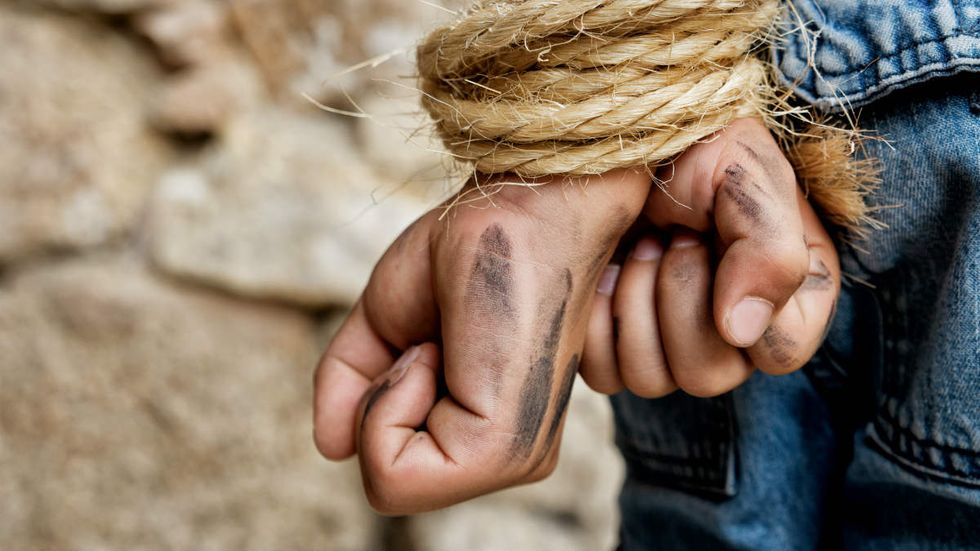
© 2024 Blaze Media LLC. All rights reserved.
It seems bizarre that we live in a world where violence is erupting over cold, dead statues. I mean, I get it. People have strong feelings on both sides. Some view the statues as a symbol of oppression and slavery, others as a historical touchstone that should be remembered. It’s emotional.
But where emotions are involved, a little perspective is usually helpful. And while there’s nothing wrong with examining the sins of the past and trying to be respectful and considerate in the present, let’s not forget that the history of slavery didn’t end in the 1860s. According to the Global Slavery Index, nearly 46 million people are enslaved today in 167 countries. This ranges from places you might expect, like North Korea, where nearly five percent of the population is enslaved, to places you might not, like India, which has the highest number of slaves at nearly 18 million.
I’m not bringing this up to diminish or excuse the horrors of slavery in the United States, but merely to point out that slavery remains a very serious problem for people all over the world, not just a historical relic. It’s not an academic argument about flags and symbols. It’s a very real, global crisis that gets far less attention than it deserves.
There is an understandable human tendency to disregard that which is remote in favor of that which is familiar. We care about things that are near to us more than things that are far away. It’s why a domestic murder can get weeks of news coverage, while the deaths of thousands of war casualties overseas receive barely a mention. As Adam Smith wrote in “The Theory of Moral Sentiments”: “If [a man] was to lose his little finger to-morrow, he would not sleep to-night; but, provided he never saw them, he will snore with the most profound security over the ruin of a hundred millions of his brethren, and the destruction of that immense multitude seems plainly an object less interesting to him, than this paltry misfortune of his own.”
Nevertheless, we should strive to, if not overcome, at least mitigate this tendency, by realizing that the lives and freedoms of our fellow human beings are not worth less just because they are far away. In what I’m sure the opponents of Donald Trump would find an irony, an “America First” mentality is causing them to misplace their focus on tearing down symbols rather than on helping the people who need it.
Sadly, much of the furor over Confederate statues is less about opposition to slavery and more about virtue-signaling and identity politics. Demanding that a statue be removed is a way of announcing to the world, “I’m not a racist!” But while racism is a terrible evil, the fact that modern slavery does not break down across convenient racial and ethnic lines does not make it less abhorrent. Donating your time or money to oppose slavery and sex trafficking in, say, Uzbekistan, may not result in as sexy a photo op as appearing on the news at an Antifa rally, but it will undoubtedly do a lot more to actually help people who are suffering.
A statue might hurt someone’s feelings, bring back bad memories, or send the wrong message, but at the end of the day, statues aren’t robbing people of their fundamental human freedoms. If it makes you feel good to tear down a statue, think how much better you’d feel by actually helping to liberate those in bondage. If we really care about slavery, perhaps our energies could be better directed towards helping people in the present, rather than remaining fixated on the past.
Want to leave a tip?
We answer to you. Help keep our content free of advertisers and big tech censorship by leaving a tip today.
Want to join the conversation?
Already a subscriber?
more stories
Sign up for the Blaze newsletter
By signing up, you agree to our Privacy Policy and Terms of Use, and agree to receive content that may sometimes include advertisements. You may opt out at any time.
© 2024 Blaze Media LLC. All rights reserved.
Get the stories that matter most delivered directly to your inbox.
By signing up, you agree to our Privacy Policy and Terms of Use, and agree to receive content that may sometimes include advertisements. You may opt out at any time.


